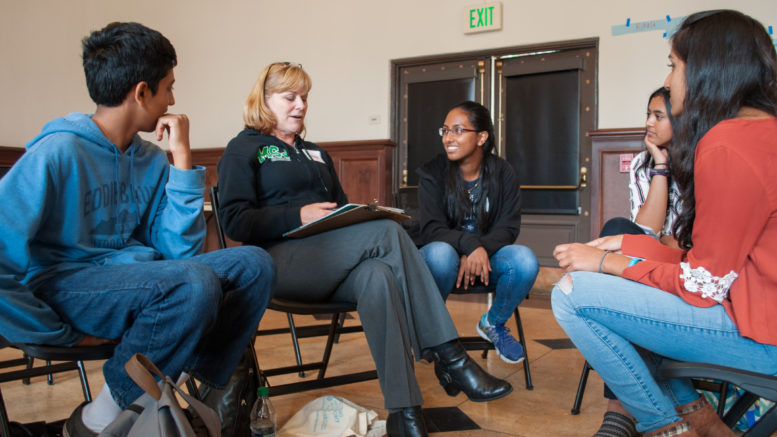By Staff Writers Ashni Mathuria & Jennifer Xiang
Student and teacher representatives from several schools around the Bay Area attended an event on Friday, October 17, centered around the documentary What Tomorrow Brings, which told the story of one of the only all-girls schools in Afghanistan. The event was held in Berkeley, by non-profit, education-focused organization Facing History and Ourselves. The filmmaker, Beth Murphy, and the founder of the school, Razia Jan, were both in attendance. After a brief introduction by Facing History representatives, attendees watched the 50-minute film.
The film was centered around Razia and her students’ journeys in operating and learning at a girl’s school in Afghanistan, where effects of the Taliban regime’s opposition to female education still lingers. Thus, the students in the film face a severe amount of opposition; the principal and guard of the school test the water and air quality on themselves daily to prevent poisonings. Similar schools throughout Afghanistan have faced arson, acid attacks, and poisonings.
The poignancy and depth of What Tomorrow Brings brought many in the audience to tears. After the film, Razia and Murphy answered questions from students and teachers and shared insightful stories about their experiences.
When Razia and Murphy finished answering questions, the students and teachers were divided into groups for lunch and discussion. All students and educators reflected on the life of Rihala, one of the students featured in the film. After this session and a break, groups discussed topics, including the role of education as a human right, the current state of school systems in the United States, and the importance of female education in society.
One such group had a panel of high school girls from Yemen, many of whom had personal experiences with the types of gender-based discrimination and stigmatization of education that the students in What Tomorrow Brings faced. The girls talked about the gender roles and restrictions forced on them or family members, sharing stories about limitations on their hairstyles, clothing, and activities. Though all students have different experiences, many empathized with the strict regulations placed on the panelists by their parents. Teachers facilitated discussions between students and panelists, allowing the attendees to smoothly navigate complex issues such as gender, sexuality, and humanitarian rights.
After the discussions, students and teachers regrouped with the attendees from their respective schools to plan future events based on What Tomorrow Brings. Students and teachers who attended the Facing History event are currently still working out the logistics of the proposed screening. They hope that the film will enrich the lives of more viewers. When discussing Razia Jan’s actions during the film, James Logan High School Junior Juliana Viado said, “I think it was really brave of [Razia] to put herself at risk, as [hers] is a society full of terrorist attacks.” MSJ students in attendance believe that, like Viado, students who attend the screening of the documentary will be inspired by Razia’s courage and determination to provide an invaluable education for girls in Afghanistan.
Photo by Staff Writer Jennifer Xiang


Be the first to comment on "“What Tomorrow Brings” and Facing History and Ourselves spark student interest in education around the world"